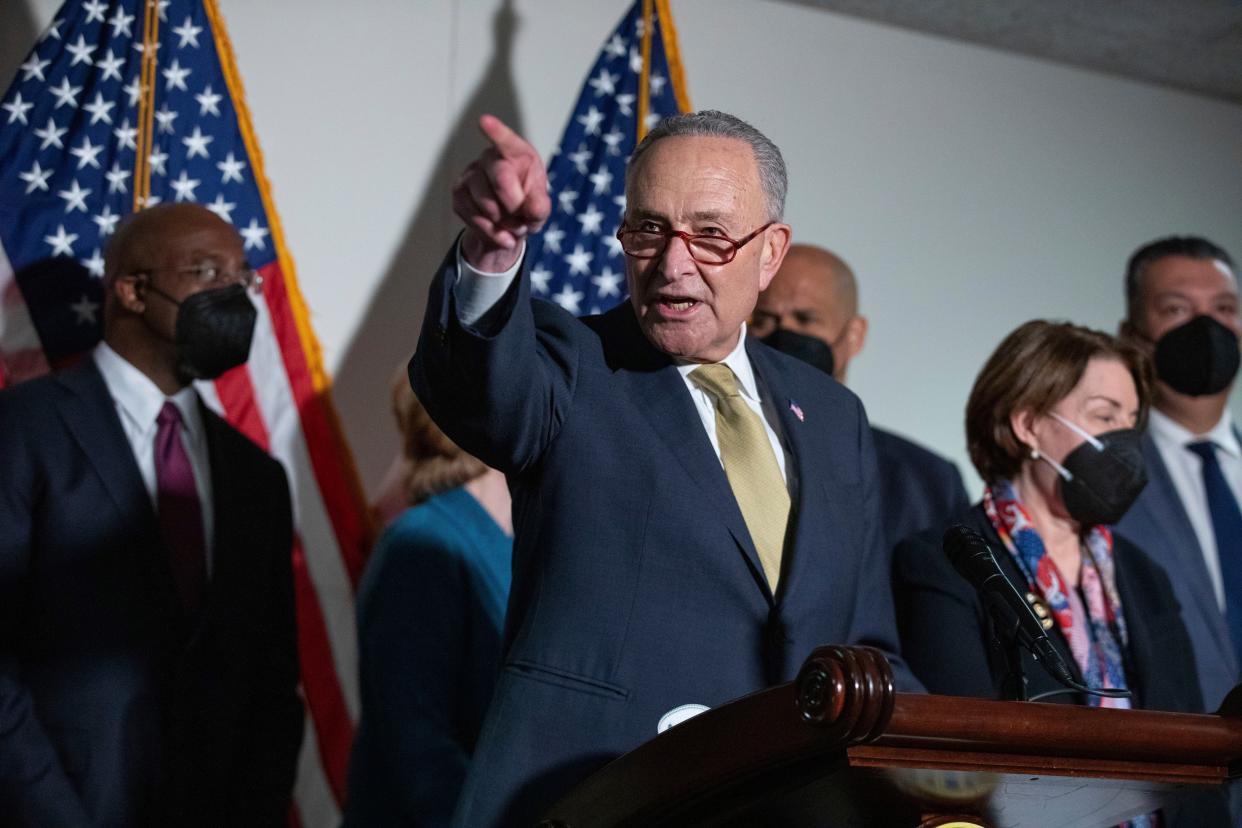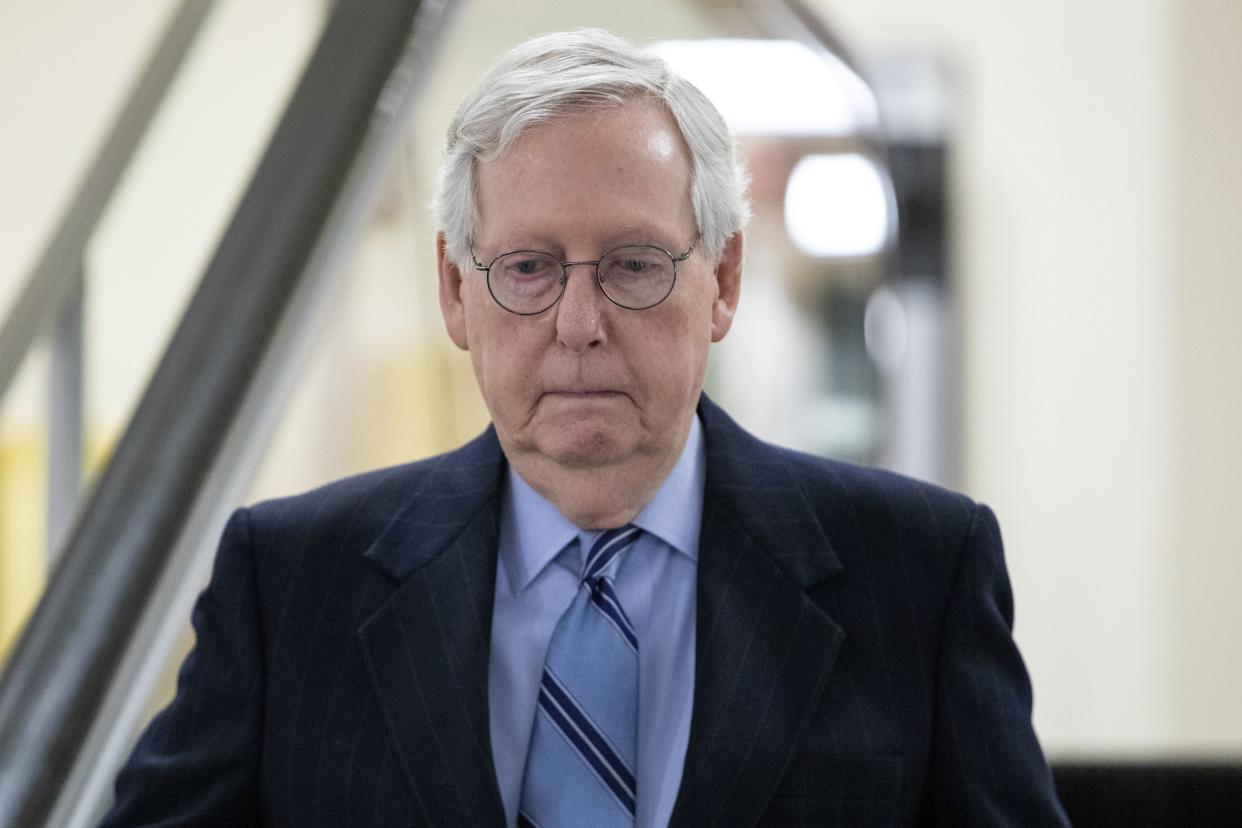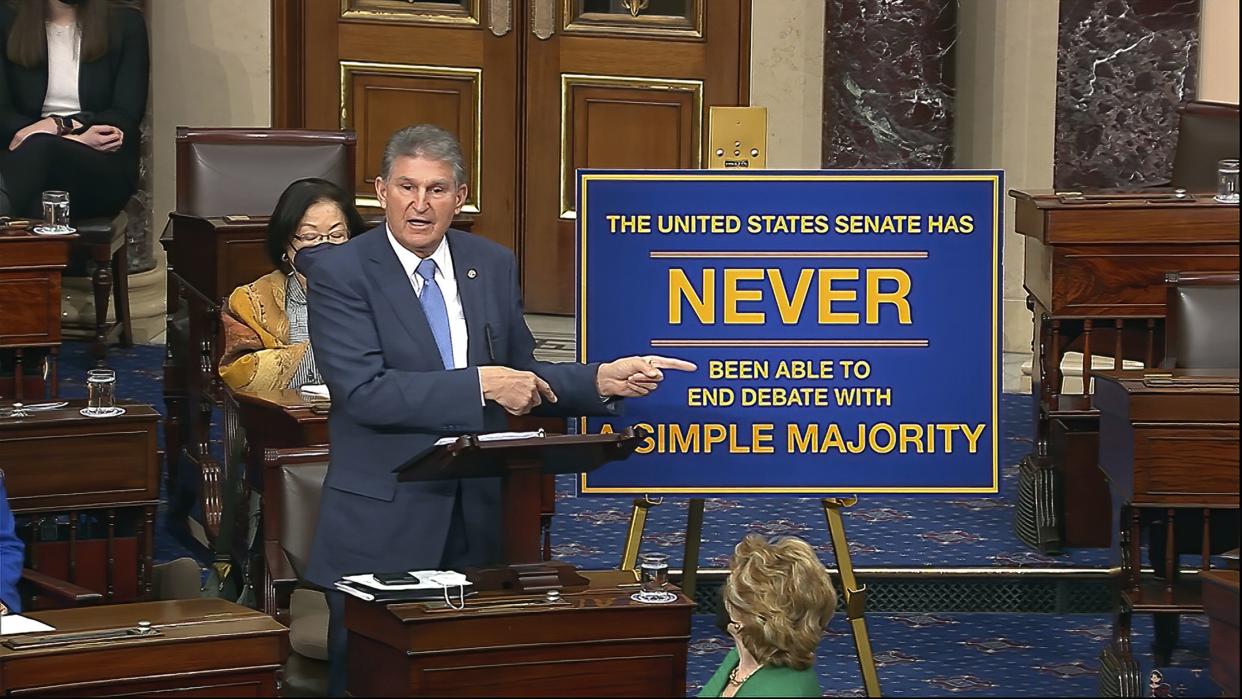Senate voting bill blocked by Republican filibuster
Billed as vital to democracy, voting legislation collapsed Wednesday when two Democratic senators refused to join their own party in changing Senate rules to overcome a Republican filibuster.
Democrats could not persuade holdout Sens. Kyrsten Sinema of Arizoona and Joe Manchin of West Virginia to change the Senate procedures on this one bill and allow a simple majority to advance it.
“It’s not just this vote. These are people who I think have undermined the President of the United States,” a furious Sen. Bernie Sander (I-Vt.) said afterward.
The nighttime voting brought an end, for now, to legislation that has been a top Democratic priority since the party swept control of Congress and the White House.
“You cannot remember MLK and dismember his legacy at the same time... I will not sit quietly while some make Dr. King a victim of identity theft,” said Sen. Raphael Warnock, D-Ga.
Vice President Kamala Harris briefly presided, able to break a tie in the 50-50 Senate, but her vote did not appear to matter.
”Whatever happens tonight and the outcome of this vote, the President and I are not going to give up on this issue,” Vice President Kamala Harris said earlier Wednesday night. “This is fundamental to our democracy and it is non negotiable.”

The Freedom to Vote: John R. Lewis Act combines earlier bills into one package that would make Election Day a national holiday, ensure access to early voting and mail-in ballots — which have become especially popular during the COVID-19 pandemic — and enable the Justice Department to intervene in states with a history of voter interference, among other changes.
Senate Majority Leader Chuck Schumer (D-N.Y.) had vowed that the fight is not over and ridiculed Republican claims that the new election laws in the states won’t end up hurting voter access and turnout.
“If the Senate cannot protect the right to vote, protect the cornerstone of our democracy under the existing rules, then the Senate rules must be reformed,” Schumer said.

GOP Minority Leader Sen. Mitch McConnell (R-Ky.) countered that Democrats are just seeking to implement longstanding partisan policy changes to help them win elections.
“Democrats have spent years stoking fear and panic over voting laws and the American people simply do not buy it,” McConnell said.

Schumer says he will ask for a majority vote to enact a so-called “talking filibuster” requiring lawmakers who oppose the bill to stand at their desks and exhaust the debate before holding a simple majority vote, rather than the current practice allowing senators to privately signal their objections.
But even that is expected to fail because Manchin and Sinema have said they are unwilling to change the rules on a party-line vote by Democrats alone.

McConnell, who led his party in doing away with the filibuster’s 60-vote threshold for Supreme Court nominees during Donald Trump’s presidency, warned against changing the rules again.
He derided the “fake hysteria” from Democrats over the states’ new voting laws and called the pending bill a sprawling federal takeover of election systems. He said doing away with filibuster rules would “break the Senate.”
Manchin defended the filibuster and said majority rule would only “add fuel to the fire” and it was “dysfunction that is tearing this nation apart.”
“For those who say bipartisanship is impossible, we have proven them wrong,” Manchin said, citing the recent infrastructure bill he helped pass into law. “We can do it again. ... We can make it easier to vote.”
With News Wire Services
